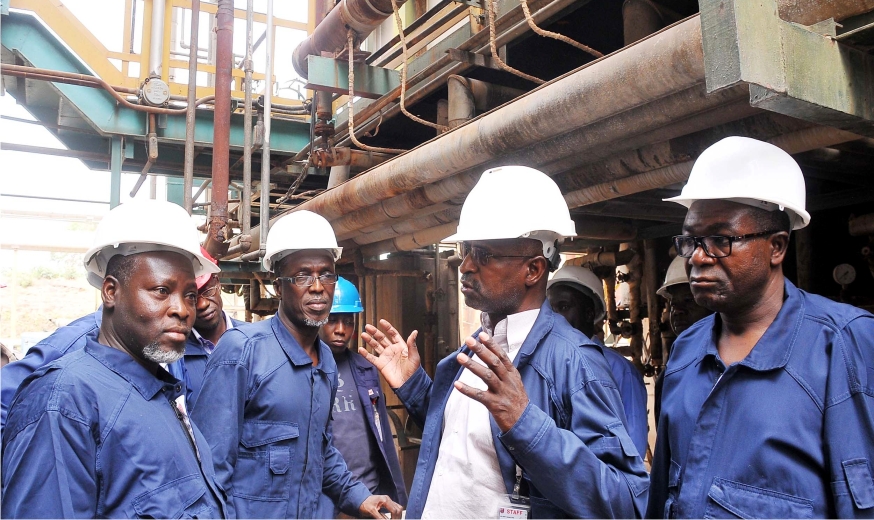Oil & Energy
Fire Guts TCN’s Power Plant In Ibadan

A power plant belonging to the Transmission Company of Nigeria (TRC) located at Ring Road in Ibadan, the Oyo State capital was gutted by fire yesterday.
The fire incident while attracted the attention of security agents, firefighters and other residents who were trying to reduce the damages, lasted for more than one hour.
The cause of the fire and the extent of damage is yet to be ascertained as at the time of filing this report, but, firefighters were still at the plant station trying to control the fire.
Though, there are speculations that the power plant belongs to the Ibadan Electricity Distribution Company (IBEDC), Regional Communication Officer, Oyo Region of IBEDC, Frank William, confirmed that the power plant belongs to Transmission Company of Nigeria (TRC) and not IBDEC as being speculated.
“This is a fire outbreak at TRC Plant in Ring Road Ibadan. I can confirm to you. But, it does not belong to IBDEC. It is under Transition Company of Nigeria.
“Fire fighters are there and I can confirm that there is a high level of damage control”.
Efforts made by The Tide to get the reaction of the Head of Fire Service in Oyo State, Mr. Mashood Adewuyi, proved abortive.
The Tide reports that the fire incident at TRC plant came barely twenty four hours after a fire outbreak was recorded along the Akala Expressway Elebu area of Ibadan.
On Tuesday, some shops and houses were affected when fire broke out along the Akala Expressway, near the popular Club 360 along Akala Expressway, Elebu, Ibadan.
It was gathered that the fire incident which razed shops on that axis in the early hours of Tuesday broke out from one of the shops.
Oil & Energy
NERC, OYSERC Partner To Strengthen Regulation

Oil & Energy
NLC Faults FG’s 3trn Dept Payment To GenCos

Oil & Energy
PENGASSAN Rejects Presidential EO On Oil, Gas Revenue Remittance ……… Seeks PIA Review

-
Maritime5 days ago
Nigeria To Pilot Regional Fishing Vessels Register In Gulf Of Guinea —Oyetola
-

 Sports5 days ago
Sports5 days agoGombe-Gara Rejects Chelle $130,000 monthly salary
-
Maritime5 days ago
Customs Declares War Against Narcotics Baron At Idiroko Border
-

 Sports5 days ago
Sports5 days agoTEAM RIVERS SET TO WIN 4×400 ” MORROW” …Wins Triple jump Silver
-

 Sports5 days ago
Sports5 days agoNPFL Drops To 91st In Global League Rankings
-
Maritime5 days ago
NIMASA,NAF Boost Unmanned Aerial Surveillance For Maritime Security
-

 Sports5 days ago
Sports5 days agoNIGER DELTA GAMES PANACEA TO YOUTH DEV”
-

 Sports5 days ago
Sports5 days agoNPFL Impose Fines On Kwara United Over Fans Misconduct

